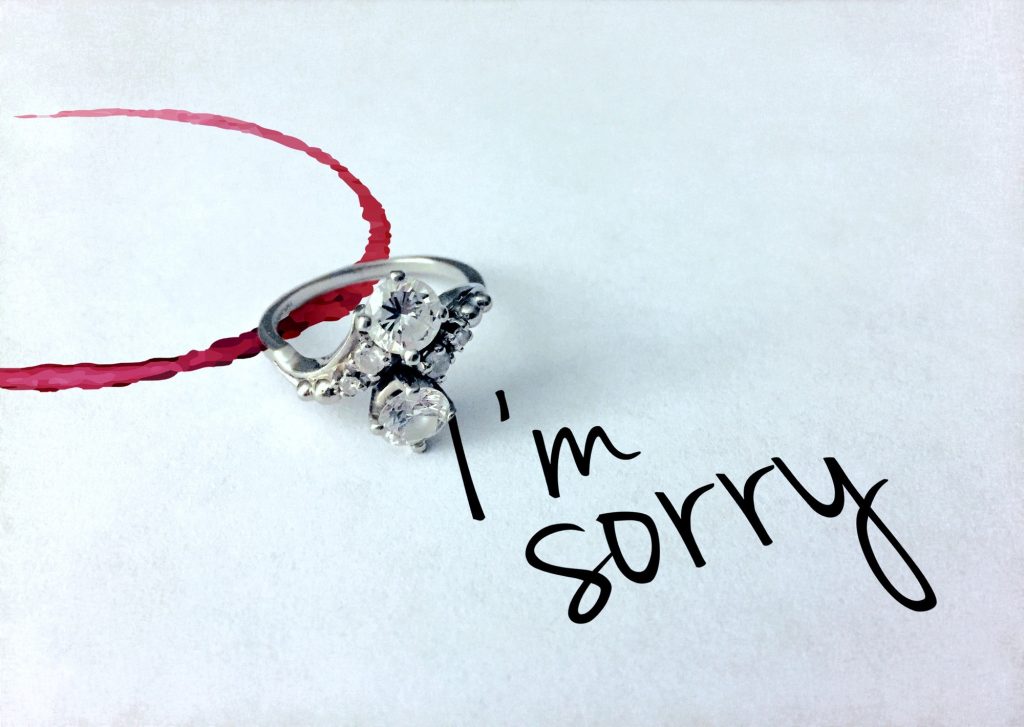
You’ve got your own love language down, but were you aware you also have an “apology language?” There are numerous ways of saying “I love you”—some may show it with a sweet act, others might show love through physical touch—there are also many ways to show you’re sorry.
And just like how understanding your love language can help you be a better partner, understanding your apology language and your partner can ultimately influence your relationship positively.
What is apology language, anyway?
Apologies are at the heart of repair. Apologies have their own individual styles and sentiments, including physical affection, acts of service, or emotional ownership. (More on that to come!)
Your apology language is how you decide to express your regret or make amends with others.
Your apology language of choice can be tracked to your roots. As kids, we all learned subtly different ways to make and receive apologies when there’s been a breach in a relationship. Some of us didn’t learn to apologize, while others learned to emphasize empathy, remorse, or reparations.
Are you apologizing too much?
Let’s look at the common practice of over-apologizing. Sometimes, we simply apologize out of habit. Women, in particular, sometimes take responsibility for the emotions and feelings of others. If someone is having a bad day, try: It seems like you’re having a rough time. Tell me if there is something that I can do.
Obviously, we all do things that demand an apology, whether it’s criticizing someone unnecessarily, losing your temper, or, you know, taking the last bottled water. So when the time comes to make amends, do so with sincerity and intention. Be specific about what you’ve done, and let them know that you understand the effect your actions may have had on them.
The benefits of knowing your apology language
Understanding your apology language can help you in many aspects of your life. Realizing your personal style can help you teach your partner, cultivate more creative solutions, and change future behavior in a way that lets the apology aid in simple repair.
This means stronger relationships: knowing your apology style, coupled with assuming responsibility for what you’ve done and offering those you’ve snubbed a sincere apology, can increase self-esteem and compassion for yourself and others.
So, what’s your apology language?
Suppose you’re not sure exactly which framework is your preferred apology language. In that case, you may want to reflect on how you’ve apologized before in the past, think about how you like apologies said to you by others, and try out a couple different ways of apologizing as circumstances call for it until you find the one that feels best.
Words of ownership: talking
Apologizing through words is all about accepting your past actions and perceiving how you’ll change your way in the future.
Words of ownership: writing
Some people get flustered throughout high-pressure conversations, and apologies can seem like that sometimes. If you favor sending a thoughtful text, this apology method is all for you. It may also be a reliable strategy if you feel like pressures are still high.
Acts of service
People who fancy this form of apologizing treat apologies like a verb. As with other apologies, if you fit this type, you’ll want to be as precise as possible in any movements you make to explain your regret. For example, if your man calls you out for always hogging the TV, make a television schedule and put it on your fridge to sincerely show you’re taking his concern.
Physical affection
Do you desire physical connection after a disagreement with your better half to ask for pardon? Then, physical touch is your apology language. Physical bonding and physical closeness as a means of apologizing can be genuine, reparative, and soothing. When physical closeness is coupled with true ownership and genuine apologetic sentiments, it can produce a unique brand of apologizing that recognizes the hurt and offers positive confirmation.
How to manage if your apology language differs from your partner’s
Like love languages, it’s normal to encounter various apology languages in a healthy relationship. After the day is over, the only thing you can do is understand your partner’s apology language and make sure they identify your language.